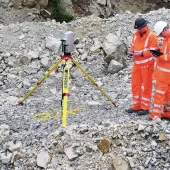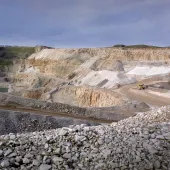Welsh Government to close Aggregates Levy Fund

Blow to local communities in Wales and end of community and environmental benefits across the UK
THE decision of the Welsh Government to close the Aggregates Levy Fund (ALF) has been greeted with regret by MPA Wales, and marks the end of community and environmental benefits associated with the aggregates levy across the UK.
When the levy was introduced in 2002 it was intended that around 10% per annum of levy revenue would be spent on a variety of community and environmental projects as a means to deliver environmental improvement across the sector, and reflect the local impacts of mineral extraction.
The UK Government currently receives around £350 million of aggregates levy revenue per annum, but following the announcement by Lesley Griffiths AM (pictured), Cabinet Secretary for Environment and Rural Affairs, that a budget for the Welsh ALF programme will not be carried forward into 2017, none of this revenue will now be available.
After Defra announced the end of the English equivalent of the ALF – the Aggregate Levy Sustainability Fund (ALSF) – in 2011, the Welsh Government had, until now, been the only devolved administration to maintain a levy Fund.
The Welsh ALF was set up to use revenues from the levy for positive environmental and community purposes and had, over the last 15 years, invested £20 million in such projects within Welsh quarrying communities, helping to build strong and lasting relationships between the industry and local people.
Nick Horsley, MPA director for Wales, commented: ‘The decision of the Welsh Government is extremely disappointing for mineral operators. The ALF has been an integral part of the aggregates levy scheme and was a way for a small proportion of the revenue raised by the levy to bring real benefit to local communities in quarrying areas.
‘As the minerals sector is one of the last remaining heavy industries in Wales, the end of the Fund removes a positive mechanism that built dialogue and joint working between industry and local people, which helped to raise awareness of the contribution the industry makes to the economy.’
Since the scrapping of the English scheme six years ago, the MPA has called for the introduction of a smaller-scale scheme that could still bring significant public benefits, but so far this proposal has been rejected by government. The Association says any suggestion that the levy was an ‘environmental’ tax has therefore been negated – it is now just about revenue raising.









